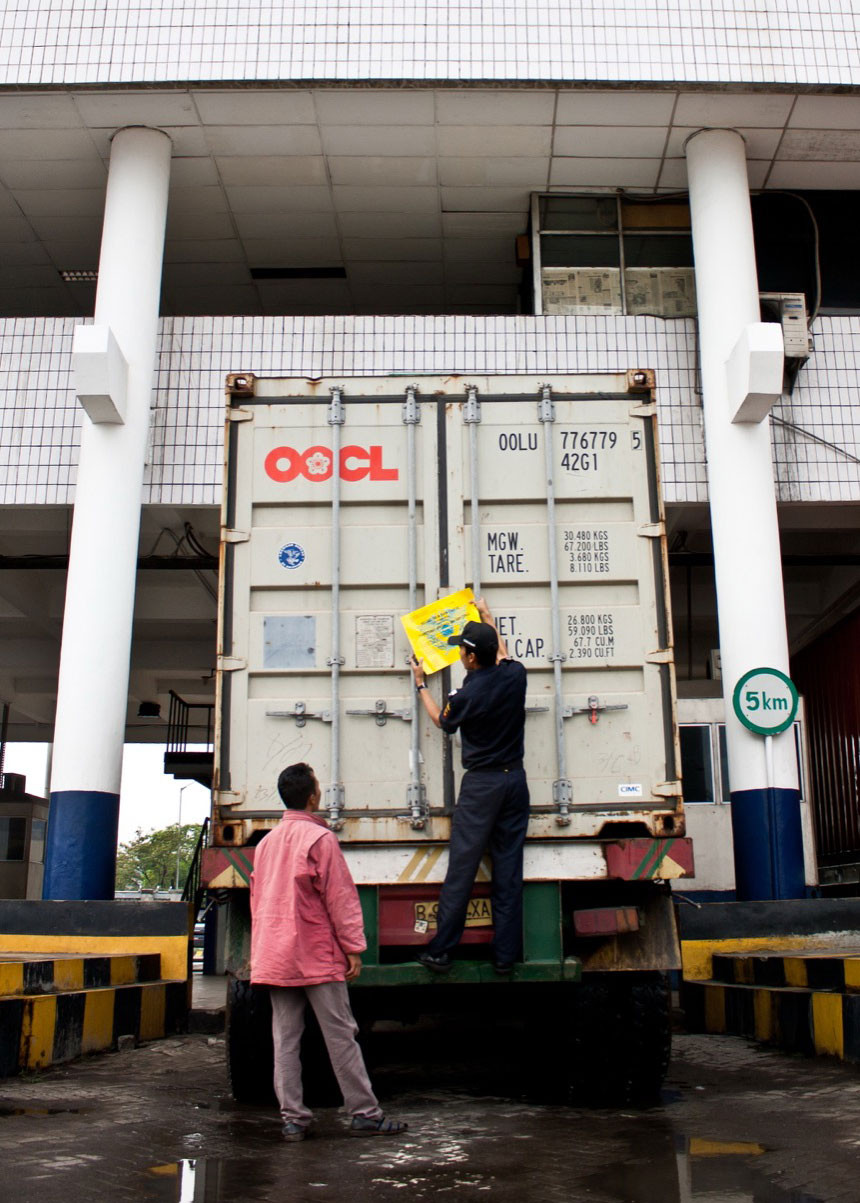Popular Reads
Top Results
Can't find what you're looking for?
View all search resultsPopular Reads
Top Results
Can't find what you're looking for?
View all search resultsCustoms and Excise issues flush out duties to support CPO export acceleration policy
Change text size
Gift Premium Articles
to Anyone
A
fter being subject to a temporary export ban earlier in April, crude palm oil (CPO), refined, bleached and deodorized palm oil (RBD PO), RBD palm olein and used-cooking oil (UCO) products are now subject to restrictions and can be re-exported by exporters who have export approval from the Trade Ministry.
The acceleration of export distribution (flush out) for CPO commodities and their derivatives is regulated in Trade Ministerial Regulation (Permendag) No. 38/2022, which is valid from June 8 to July 31, 2022.
The list of goods whose exports are restricted is contained in Finance Ministerial Decree (KMK) No. 20/2022, which includes CPO, RBD PO, RBD Palm Olein and UCO. The decision is intended to optimize and stabilize the production chain and trade of the commodities, encourage national economic growth and maintain production stability and prices for fresh fruit bunches (TBS) at the farmer level.
Trade Ministerial Regulation No. 38/2022 stipulates that exporters must have export approval documents (PE) as a condition for exporting CPO and its derivative products, with the PE valid for six months.
To obtain the PE, exporters must have proof of the distribution of domestic needs (domestic market obligation, DMO) with domestic sales prices (domestic price obligation, DPO) to producers of bulk cooking oil, proof of DMO distribution of bulk cooking oil with DPO to retail logistics service business actors and purchase of CPO without using DPO, and proof of DMO distribution of other producers preceded by cooperation between exporters and producers implementing the DMO distribution.
The documents are to be submitted through the Indonesia National Single Window (INSW) in the form of an electronic data element with a registration number, business and company name.
Following the implementation of Trade Ministerial Regulation No. 38/2022, the Finance Ministry also issued Finance Ministerial Regulation (PMK) No. 102/PMK.010/22 on the stipulation of exported goods subject to export duties and export duty tariffs for the program for the acceleration of distribution of CPO, RBD PO, RBD Palm Olein and UCO through exports; and PMK No. 103/PMK.05/2022 on service fees for the Palm Oil Support Fund Agency (BPDPKS) at the Finance Ministry.
The two ministerial regulations were stipulated on June 13, 2022 and took effect on June 14, 2022.
Customs and Excise director of communications and guidance for service users Nirwala Dwi Heryanto explained that PMK No. 102/2022 stipulates export duties on exported commodities in order to flush out.
The export duty rate for CPO is stipulated at US$488 per ton, RBD Palm Oil at $351/ton, RBD Palm Olein at $392/ton, UCO at $488/per ton and residue (FFA value less than 20 percent) at $488/ton.
“These tariffs are valid until July 31, 2022, and export goods subject to export duties based on flush out tariffs are not subject to export duties based on Finance Ministerial Regulation No. 98/2022," he explained.
Meanwhile, PMK No. 103/2022 stipulated an agreement to reduce the tariff for the BPDPKS public service agency, from a maximum of $375/ton to $200/ton. The policy is intended to ensure the availability of BPDPKS funds and maintain TBS prices at the farmer level.
Following up on the two PMKs, Customs and Excise is implementing strategic steps so that the implementation of the two policies can run well and smoothly.
Nirwala said that his team had carried out comprehensive coordination with Customs and Excise’s vertical units and established synergies with relevant ministries and agencies to optimize the effectiveness of implementing the policy.
"Internally, Customs and Excise through the Technical Directorate of Customs disseminated the rules to all Customs Service offices in various regions on June 10. Heads of offices have also been advised to conduct intensive and in-depth research and supervision on company exports to comply with applicable regulations.
“To determine general export duty rates or flush out tariffs, Customs and Excise officers distinguish export customs notification documents based on the number or code of the attached PE document, and we will continue to optimize the help desk team at the operational level and the task force team at the central level to reduce disputes," he explained.
Externally, Customs and Excise continues to coordinate with the Trade Ministry’s National Single Window Agency (LNSW) and the Data and Information System Center (PDSI) to make adjustments to the Service Computer System (SKP) and the INSW systems to validate payment of export duties according to the applicable tariffs. This includes coordinating the PE code issued by the Trade Ministry as a complementary document for prohibited goods, which is also used to distinguish between general export activities or exports in the context of the flush out program.
"We fully support the implementation of this government policy as a manifestation of efforts to protect the community and support economic recovery, which is also the main work plan of Customs and Excise in 2022. We also invite stakeholders and the public to continue to improve compliance with export regulations, which will in turn benefit the national economic recovery and public welfare," Nirwala concluded.










